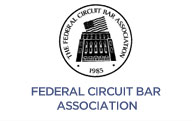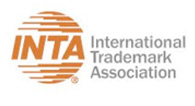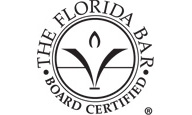Trademarks
A trademark is a word, phrase, symbol or design, or combination of words, phrases, symbols or designs, which identifies and distinguishes the source of the goods or services of one party from those of others. Examples of well-known trademarks include Coca-Cola for soft drinks, Kodak for film, Nike for footwear, and Microsoft for software.
Full Service Trademark Counseling
The attorneys at Malin Haley DiMaggio & Bowen are experienced in protecting and enforcing common law trademark rights as well as those subject to federal and/or state registration.
The attorneys at Malin Haley DiMaggio & Bowen provide full-service counseling in determining the availability of marks and the feasibility of obtaining federal or state registrations for trademarks or service marks. We conduct computerized searches for previously registered marks, and pending applications which might bar an application.
The firm handles all aspects of Trademark Law including the preparation of amendments in response to communications form the PTO, the maintaining and monitoring of extensive domestic and international trademark portfolios and the handling of litigation involving the unauthorized use of trademarks and service marks, trade dress, as well as unfair competition and false advertising claims under Section 43(a) of the Lanham Act.
Trademark Rights
Trademark rights arise from either actual use of the mark, or from the filing of a proper application to register a mark in the Patent and Trademark Office (PTO) stating that the applicant has a bona fide intention to use the mark in commerce regulated by the U.S. Congress. Federal registration is not required to establish rights in a mark, nor is it required to begin use of a mark. However, federal registration can secure benefits beyond the rights acquired by merely using a mark. For example, the owner of a federal registration is presumed to be the owner of the mark for the goods and services specified in the registration, and to be entitled to use the mark nationwide.
There are two related but distinct types of rights in a mark: the right to register and the right to use. Generally, the first party who either uses a mark in commerce or files an application in the PTO has the ultimate right to register that mark. The right to use a mark can be more complicated to determine. This is particularly true when two parties have begun use of the same or similar marks without knowledge of one another and neither has a federal registration. Only a court can render a decision about the right to use, such as issuing an injunction or awarding damages for infringement. It should be noted that a federal registration could provide significant advantages to a party involved in a court proceeding.
Life of a Trademark
Unlike copyrights or patents, trademark rights can last indefinitely if the owner continues to use the mark to identify its goods or services. The term of a federal trademark registration is 10 years, with 10-year renewal terms. However, between the fifth and sixth year after the date of initial registration, the registrant must file an affidavit setting forth certain information to keep the registration alive. If no affidavit is filed, the registration is canceled.
What Trademarks Cannot Protect
Trademark law cannot cover descriptive or generic words or phrases, which are unregisterable because these word and phrases are common and are allowed to remain in the public domain. For example, “Hardware and Home Supply Center” cannot be registered as a trademark since the phrase describes the product and services it is associated with.
TM, SM or ®
Anyone who claims rights in a mark may use the TM (trademark) or SM (service mark) designation with the mark to alert the public to the claim. It is not necessary to have a registration, or even a pending application, to use these designations. The claim may or may not be valid. The registration symbol, ®, may only be used when the mark is registered in the PTO. It is improper to use this symbol at any point before the registration issues.
After conducting its own examination of proposed trademarks, the PTO publishes these trademarks in a magazine called the Official Gazette. This permits members of the public to object if they think the trademark should not be registered.
The owner of a mark may sue an infringer and is entitled to an injunction forbidding the infringer from continuing to use the mark. In certain cases, the trademark owner may also be entitled to an award of monetary damages. Even if the marks are not identical, or even if they are used on different types of products, a court can still declare an infringement if it finds that the public might be confused. Courts look at many different kinds of evidence to decide if the public might be confused. Relevant factors include consumer familiarity with the plaintiff’s trademark and the intent of the defendant. If a trademark is considered famous, the owner of that mark may prevent others from using it, even if the public would not be confused. This is to prevent the dilution of the trademark.
Domain Names
Although you may have registered your company’s domain name, there is no guarantee that the name has not already been taken by another business as a trademark. Without proper protection, your company’s reputation and goodwill can be held hostage by cyber squatters. (people who register a domain name on the Internet and ransom it for sale) Registering your company’s trademark provides swift and effective recourse not only to exact duplications of your mark, but also to confusingly similar marks.






